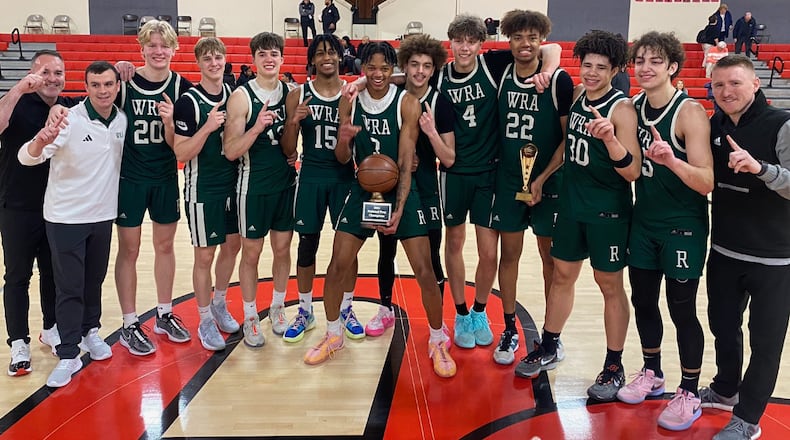He left Tecumseh High School and the Central Buckeye Conference for his senior year at Centerville, the Greater Western Ohio Conference and one of the most difficult schedules in Ohio. Then he chose to play on a national champion post-grad team at Western Reserve Academy in northeast Ohio this past season.
“I just believed in myself,” O’Connor said. “I put the work in, and it was just a matter of when I’m going to go out and show I can really do this.”
And finally a coach saw in O’Connor what he believed he had to offer all along. When Geno Ford, the former Ohio University standout and Kent State head coach, offered O’Connor a spot on the roster at Stony Brook, a Division I program on Long Island, O’Connor knew he had found his next home.
“He really believed in me, which was important,” O’Connor said. “When I went on my official visit there, I felt needed and wanted, and that was the biggest thing for me really.”
Stony Brook finished this past season 20-15, 10-8 in the Colonial Athletic Association and lost in the league tournament final in overtime to College of Charleston. The Seawolves were led by seniors, which means backcourt jobs are open for the 6-foot-3 O’Connor, who has played point guard and two guard.
“They love how I guarded, and they just thought I was a true point,” he said. “He said you have a great chance to come and play here as a freshman.”
O’Connor’s journey to college began when his dad, Wade O’Connor, left college basketball in 2013 after 20 years as a Division I assistant and short stint as a junior college coach. One of Wade O’Connor’s stops was for four years at Dayton under Oliver Purnell.
Collin O’Connor started three seasons at Tecumseh and led the Arrows in scoring as a sophomore and junior. Then he moved to Centerville for the 2022-23 season and was a senior starter, averaging nine points a game. O’Connor had been a point guard, but that position was occupied at Centerville by senior Gabe Cupps, who won Ohio’s Mr. Basketball award as a junior.
“It was definitely a great experience for me,” O’Connor said of the move to Centerville that ended with a trip to the Division I state semifinals. “It was it was challenging at times because I moved off the point. Coach (Brook) Cupps is a great coach. I learned a lot from him, especially defensively.”
Despite the greater exposure playing for Centerville, O’Connor’s recruiting didn’t match his desires. He had interest from Division II and some Division I schools. He chose prep school over junior college, which saved a year of college eligibility.
At Western Reserve he played with Damarius Owens and Royce Parham, a pair of 6-8 4-stars who are going to Marquette, and 6-11 Niko Bundalo, a 2025 4-star. Running the point with those players and getting used to college rules (40-minute games, shot clock, 3-point line) were a challenge for O’Connor that he grew into, averaging 12 points and six assists.
“With that pace of game I had to adjust early on,” he said. “I struggled but then I feel like mid to late season I figured it out and kind of knew that I was doing.”
In one weekend tournament, O’Connor scored 35 and 20 points. His team entered the 16-team national prep school tournament as the No. 15 seed and won the final by 13 points.
“He’s the toughest kid I’ve ever been around and sets the tone for us,” said O’Connor’s head coach, Matt Garvey, after Western won the championship. “Whoever he was guarding didn’t really get what they wanted.”
And college coaches began to notice O’Connor.
“The biggest thing for me is they saw me play against that type of competition,” he said. “In Ohio you might play someone that might be signed Division I, but all the teams we played, they were all mid- to high-major Division I guards. I think that helped me out a lot.”
The events Western played in meant more coaches would see him in person, which he believes finally made the difference in the interest he was getting from schools.
“I’m probably not as athletic as other players, so on film it can be deceptive and not pass the eye test,” he said. “I’m obviously going to compete at 100%. There’s some things you can’t see on film that you see in person that stands out about my game.”
About the Author

